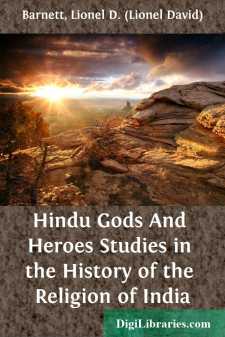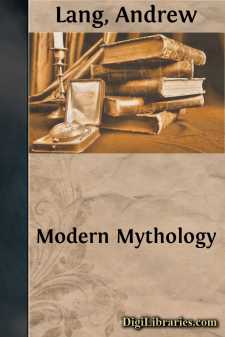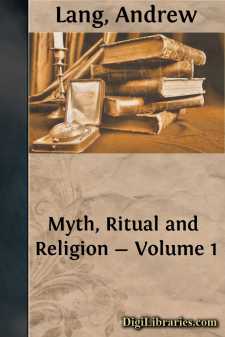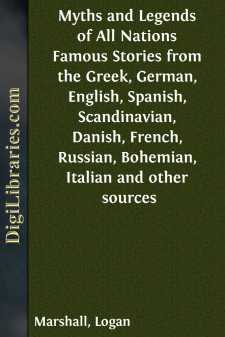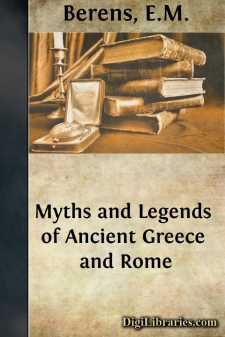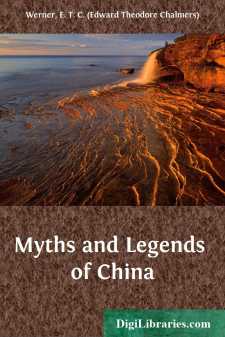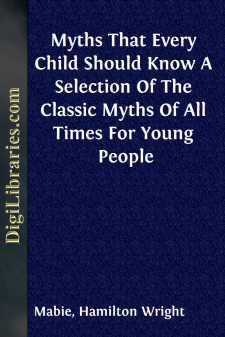Social Science
- Americana 1
- Anthropology 4
- Archaeology 7
- Criminology 2
- Emigration & Immigration 2
- Folklore & Mythology
- General 1
- Slavery 10
- Sociology 10
- Sociology of Religion 1
Folklore & Mythology Books
Sort by:
THE VÃâDIC AGE Let us imagine we are in a village of an Aryan tribe in the Eastern Panjab something more than thirty centuries ago. It is made up of a few large huts, round which cluster smaller ones, all of them rudely built, mostly of bamboo; in the other larger ones dwell the heads of families, while the smaller ones shelter their kinsfolk and followers, for this is a patriarchal world, and...
more...
PREFACE The welcome which has been accorded to the volumes of this Series, and the fact that some of them have passed into second and third editions, suggest that these little books have been found useful by beginners in Egyptology and others. Hitherto the object of them has been to supply information about the Religion, Magic, Language, and History of the ancient Egyptians, and to provide editions of...
more...
by:
Andrew Lang
INTRODUCTION It may well be doubted whether works of controversy serve any useful purpose. ‘On an opponent,’ as Mr. Matthew Arnold said, ‘one never does make any impression,’ though one may hope that controversy sometimes illuminates a topic in the eyes of impartial readers. The pages which follow cannot but seem wandering and desultory, for they are a reply to a book, Mr. Max Müller’s...
more...
by:
Tito Vignoli
CHAPTER I. THE IDEAS AND SOURCES OF MYTH. Myth, as it is understood by us, and as It will be developed and explained in this work, cannot be defined in summary terms, since its multiform and comprehensive nature embraces and includes all primitive action, as well as much which is consecutive and historical in the intelligence and feelings of man, with respect to the immediate and the reflex...
more...
by:
Andrew Lang
PREFACE TO NEW IMPRESSION. When this book first appeared (1886), the philological school of interpretation of religion and myth, being then still powerful in England, was criticised and opposed by the author. In Science, as on the Turkish throne of old, "Amurath to Amurath succeeds"; the philological theories of religion and myth have now yielded to anthropological methods. The centre of the...
more...
by:
Logan Marshall
PROMETHEUS, THE FRIEND OF MAN Many, many centuries ago there lived two brothers, Prometheus or Forethought, and Epimetheus or Afterthought. They were the sons of those Titans who had fought against Jupiter and been sent in chains to the great prison-house of the lower world, but for some reason had escaped punishment. Prometheus, however, did not care for idle life among the gods on Mount Olympus....
more...
by:
E.M. Berens
PART I.—MYTHS. INTRODUCTION. Before entering upon the many strange beliefs of the ancient Greeks, and the extraordinary number of gods they worshipped, we must first consider what kind of beings these divinities were. In appearance, the gods were supposed to resemble mortals, whom, however, they far surpassed in beauty, grandeur, and strength; they were also more commanding in stature, height being...
more...
Chapter I The Sociology of the Chinese In spite of much research and conjecture, the origin of the Chinese people remains undetermined. We do not know who they were nor whence they came. Such evidence as there is points to their immigration from elsewhere; the Chinese themselves have a tradition of a Western origin. The first picture we have of their actual history shows us, not a people behaving as if...
more...
Introduction Ancient Babylonia has made stronger appeal to the imagination of Christendom than even Ancient Egypt, because of its association with the captivity of the Hebrews, whose sorrows are enshrined in the familiar psalm: In sacred literature proud Babylon became the city of the anti-Christ, the symbol of wickedness and cruelty and human vanity. Early Christians who suffered persecution compared...
more...
INTRODUCTION In many parts of the country when the soil is disturbed arrow heads are found. Now, it is a great many years since arrow heads have been used, and they were never used by the people who own the land in which they appear or by their ancestors. To explain the presence of these roughly cut pieces of stone we must recall the weapons with which the Indians fought when Englishmen, Frenchmen,...
more...


